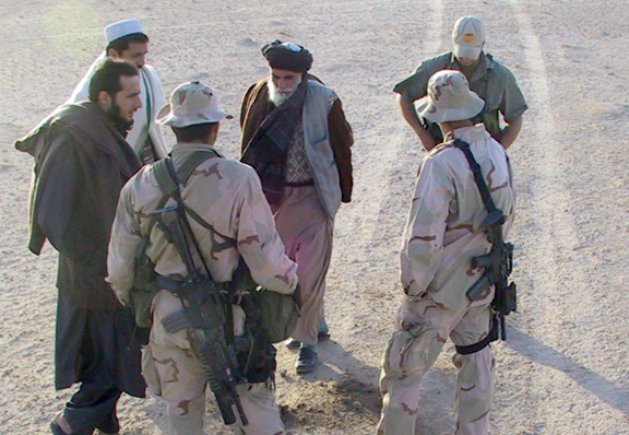UPDATE 2-Afghanistan in shock after death of powerful police commander
The assassination of a powerful police commander has left Afghanistan reeling ahead of parliamentary elections on Saturday and raised questions over talks begun recently between the Taliban and U.S. officials.

- Country:
- Afghanistan
The assassination of a powerful police commander has left Afghanistan reeling ahead of parliamentary elections on Saturday and raised questions over talks begun recently between the Taliban and U.S. officials.
U.S. Defense Secretary Jim Mattis said it was too soon to say if the death of Gen. Abdul Razeq, the police commander in southern Kandahar, would hurt voter turnout, but added that the U.S. military's mission was unaltered.
"We need to find who's done this," Mattis told reporters travelling with him in the southeast Asian city-state of Singapore. "But right now, we are going toward the election and we will continue to defend the Afghan people."
Razeq, a survivor of numerous previous attacks, was killed outside the governor's office in the southern province on Thursday when a bodyguard opened fire on a group of officials as they left a meeting.
Gen. Scott Miller, the commander of U.S. and NATO forces in Afghanistan, was also attending, but survived uninjured, although a regional intelligence agency commander was killed and the provincial governor severely wounded.
Thursday's attack underlined how precarious the situation remains in Afghanistan after more than 17 years of war and even after Taliban and U.S. officials have opened preliminary contacts to find a basis for future peace talks.
It was unclear if the attack would affect the process, following a meeting last week of Taliban officials and the U.S. special envoy, Zalmay Khalilzad, but complicates an already difficult situation.
"You're going to start asking questions about, 'Well, how trustworthy are they (the Taliban)? What influence do they really have?'" said one recently retired Defense Department official. "And you know the bottom line question is, 'Why are we still dealing with them?' or 'Should we deal with them?'"
Mattis said he had not yet spoken to Miller and could not confirm the Taliban's claim of responsibility but believed the attack would not affect Miller's security arrangements or U.S. military movements in Afghanistan.
Security officials in Afghanistan had warned of attacks ahead of the election, but Razeq's death triggered deep shock that officials fear may deter voters, particularly after Taliban warnings not to participate in what the militants consider a foreign-imposed ballot.
Mattis was cautious about whether the attack could hit turnout but said the U.S. aim of finding a negotiated, Afghan-led political solution to the conflict was unchanged.
"We remain absolutely committed to an Afghan-led Afghan reconciliation," he said.
RUTHLESS
Security was stepped up in Kandahar, with buildings around the governor's office sealed off ahead of Friday's expected arrival of a team of investigators from Kabul, the capital.
Additional troops fanned out around the Kirka Sharif shrine, where Razeq's funeral is planned for 10 a.m. (0530 GMT).
A disarmingly youthful-looking figure, with a toothy smile belying a fearsome reputation, the 39-year-old Razeq was by far the most powerful commander in the strategically vital provinces of southern Afghanistan.
Miller, who knew Razeq well from his previous tours of duty in Afghanistan, issued a statement saluting a "great friend".
"Afghanistan lost a patriot," he said on social network Twitter. "The good he did for Afghanistan and the Afghan people cannot be undone."
Last year the United Nations Committee against Torture cited "numerous and credible allegations" that Razeq was complicit in severe human rights abuses, including extrajudicial killings and secret detention centres.
But he enjoyed popular support in Kandahar and the surrounding provinces and was adept at navigating the region's complex tribal politics. He was also highly respected by U.S. officers who saw his ruthless methods as the most effective weapon against the Taliban.
"Razeq was, kind of, the embodiment of security, not just in Kandahar. It is Uruzgan, it's Zabul province," said the recently retired Defense Department official.
"He had a lot of sway over other senior officials and certainly in the police."
(This story has not been edited by Devdiscourse staff and is auto-generated from a syndicated feed.)










